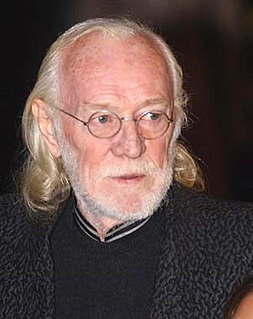Цитата Стива Брина
Я полностью осознаю, что не каждый мультфильм является материалом для Пулитцеровской премии. Тем не менее, я горжусь своим Пулитцеровским портфолио, 20-ю оценками.
Темы цитат
Связанные цитаты
Пулитцеровская премия не является физическим объектом. Вы не можете держать его в руке. Вы получаете немного денег (7500 долларов в мое время) и маленькое пресс-папье Тиффани с вашим именем и изображением Джозефа Пулитцера, подвешенным в хрустале. Когда люди видят мою «Пулитцеровку» (я храню ее в ящике для носков), они изрядно поражаются ее скудости.
Одна вещь о получении Пулитцеровской премии, это означает, что вы знаете, какими будут первые три слова вашего некролога: Лауреат Пулитцеровской премии. После получения Пулитцеровской премии я не мог не заметить, как люди вдруг стали смотреть на меня с вновь обретенным уважением и говорили: «Он эксперт». С другой стороны, у меня на какое-то время развился ужасный писательский кризис, потому что я чувствовал, что читатели будут ожидать, что каждая из моих колонок будет достойной приза.
Выиграть Пулитцеровскую премию — это очень мило, сказочно. Вы не сидите и не ждете, пока они откроют конверт. Вы уже знаете, что выиграли, и у вас есть хороший обед. Оскар вызывает больше стресса. Пришлось три часа сидеть и ждать свою категорию. Пришлось лететь в Лос-Анджелес. Чтобы получить Пулитцеровскую премию, мне просто нужно было поступить в Колумбию. Но в то время как президент Колумбии дал мне Пулитцеровскую премию, Одри Хепберн и Грегори Пек дали мне Оскар, так что это было лучше.
Пулитцеровское золото — это кладезь вдохновения как для журналистов, так и для нежурналистов. Те, кто работает в газетном бизнесе и теперь зациклен на сокращении штатов и сокращении тиражей, должны принять эту книгу как напоминание о высочайших идеалах и абсолютных острых ощущениях, которые можно найти в их профессии. Что касается постоянных читателей, Пулитцеровское золото предлагает чудесное повествование, реальные приключения и абсолютное доказательство того, что журналистика может изменить наш мир к лучшему.
Ничто так не концентрирует ум, как твердый крайний срок и тихий голосок в глубине моего разума, напоминающий мне: «Если ты не пишешь, ты не ешь». Мы все хотим, чтобы нас уважали и ценили, но когда вы получаете большую честь, например, получение Пулитцеровской премии, люди начинают искать вашу работу по-новому с более высокими ожиданиями. Сегодня лучшее, что можно сказать о победе, это когда я получаю неприятный комментарий от какого-нибудь интернет-тролля, я могу напомнить себе о Пулитцеровской премии и сказать: «Ну, кто-то меня ценит».
К счастью, у женщин-композиторов дела обстоят лучше. Теперь у нас есть пять женщин-лауреатов Пулитцеровской премии в области музыки с 1983 года: Эллен Тааффе Звилич, Шуламит Ран, Мелинда Вагнер, Дженнифер Хигдон и Кэролайн Шоу. Когда Марин Олсоп спросили, что она чувствовала, проводя Last Night of the Proms, она сказала: «Я чрезвычайно горжусь тем, что была «первой», но я также немного шокирована тем, что в 2013 году женщины все еще могут быть первыми! "


































